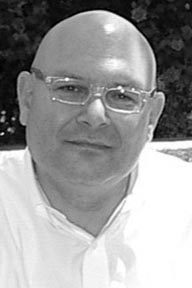Temple English professor wins Guggenheim
 Photo courtesy Lawrence Venuti
Venuti
|
Lawrence Venuti sees a unique opportunity to highlight cultural differences and introduce American readers to new literary worlds through European literatures.
“Translating is not original composition, but a second-order form of authorship,” Venuti, a Temple English professor, said. “I see translation as an opportunity to give a new life to a foreign literary work.” Venuti recently was awarded a John Simon Guggenheim Memorial Fellowship to support his translation of poetry and prose written by Italian literary master Giovanni Pascoli. “Receiving the Guggenheim fellowship is a testament to the outstanding work [Venuti] has created throughout his career as a literary translator,” Shannon Miller, chair of the English Department, said. |
|
“The Guggenheim award highlights his success and is a reflection of the strength and depth of our faculty.” Guggenheim Fellowships have been awarded annually since 1925 to scholars who demonstrate exceptional creative ability in the arts and sciences. Over the course of his fellowship, Venuti will translate a book-length selection from several of Pascoli’s collections of poetry written between 1891 and 1912. |
|
| Translating Pascoli’s work will require Venuti to step outside of his century and culture and recreate the text in a language the modern reader can understand. The entire project could take more than a year to complete, he said.
“Pascoli wrote poems in rhymed stanzaic structures,” Venuti said. “Part of the challenge is trying to develop analogous poetic forms or at least to suggest the musicality of the Italian texts.” Translating literature takes more than a basic knowledge of foreign languages, he explained. “It can become complicated because translation forcibly removes the literary work from the patterns of linguistic use, the literary traditions and the social moment that gave it life,” Venuti said. |
Translation in practice
Italian Straight translation from Italian to English Venuti’s translation |
|
Although any foreign literary work undergoes an inevitable loss in translation, there are also several gains — gains of meaning, cultural force, social effect. For Venuti, working with translations creates an opportunity to build a literary bridge between cultures. “Translation often enacts an ethnocentric violence on the foreign text,” Venuti explained. “But to take responsibility for this violence, I believe that the translator should highlight cultural differences, not erase them.” In many foreign cultures, translations amount to a substantial percentage of total annual book output, some 15 percent in France, for example, and 25 percent in Italy and Spain. By comparison, U.S. readers have access to relatively few translated titles. On average, roughly 2 percent of the nearly 200,000 new titles published each year in the United States are translations, Venuti said. Venuti received his undergraduate degree in English from Temple in 1974 and earned his master's and doctoral degrees from Columbia University. He became a member of Temple’s English Department faculty in 1980. |
|